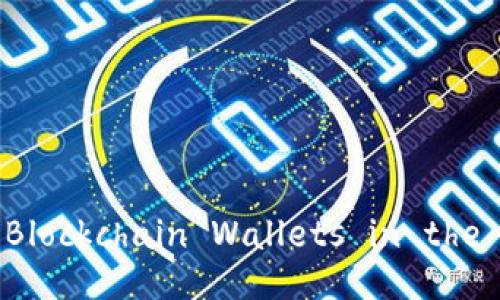比特币自2009年问世以来,逐渐吸引了全球范围内的关注与参与。作为一种去中心化的数字货币,比特币的设计理念旨...
In recent years, blockchain technology has gained significant traction, becoming a cornerstone in the ever-evolving landscape of finance and digital transactions. At the heart of this technology lies the blockchain wallet, a crucial tool for anyone looking to engage in cryptocurrency trading, investment, or utilization. Despite the rise of various financial technologies and digital payment methods, the relevance of blockchain wallets remains, raising the question: do blockchain wallets still hold value today?
This discussion aims to delve into the functionalities, advantages, and potential issues surrounding blockchain wallets, examining why they continue to be indispensable tools for cryptocurrency enthusiasts and the broader financial community.
##
A blockchain wallet functions as the interface that allows users to interact with blockchain networks. It enables individuals to store, send, and receive cryptocurrencies, all while ensuring security and privacy. Unlike traditional wallets, which hold physical cash, blockchain wallets contain cryptographic keys that allow users to access their cryptocurrencies stored on the blockchain.
There are several types of blockchain wallets, including:
The demand for blockchain wallets arises from several factors, all contributing to their essential nature in today’s financial ecosystem:
###As cryptocurrencies have become more valuable, they have also become prime targets for cybercriminals. Blockchain wallets incorporate advanced security features, such as two-factor authentication, encryption, and private keys, ensuring that users have control over their assets. This security is crucial for maintaining trust in a decentralized financial system.
###Owning a blockchain wallet provides users with direct control over their funds, unlike centralized exchanges where users may not hold their private keys. This aspect of decentralization aligns with the core ethos of blockchain technology, granting individuals autonomy over their assets without reliance on third parties.
###Blockchain wallets serve as gateways for users to access decentralized finance (DeFi) platforms and non-fungible tokens (NFTs), critical components of the modern blockchain ecosystem. By utilizing a blockchain wallet, users can dive into these emerging markets, further solidifying the wallet's relevance in contemporary finance.
##
While blockchain wallets offer numerous advantages, they are not without their challenges. Some issues that users encounter include:
###One of the most significant risks associated with blockchain wallets is the potential for user error. If a user loses access to their private keys or forgets their recovery phrase, they may permanently lose access to their funds. This risk underscores the need for users to exercise caution and maintain secure backups of their keys.
###As governments around the world grapple with cryptocurrency regulations, users of blockchain wallets must remain aware of the changing landscape. Compliance issues could arise, impacting the usability of wallets and associated services. Understanding the legal implications of using blockchain wallets is essential for safeguarding one's investments.
###The blockchain space is rapidly evolving, with new technologies and protocols emerging frequently. Wallet providers must keep pace with these changes to remain relevant, which poses challenges in terms of updates and user education. Users may find it difficult to adapt to new features and functionalities, emphasizing the need for ongoing education in the crypto space.
##A blockchain wallet is a digital wallet that allows users to store and manage their cryptocurrencies. It works by generating a pair of cryptographic keys: a public key, which functions like an account number, and a private key, which proves ownership and enables transactions. Users can send and receive cryptocurrencies by sharing their public key and using their private key to authorize transactions securely.
Blockchain wallets operate on various platforms and can come in different forms, including software applications, hardware devices, and even paper records. Each type of wallet has its own advantages and is suited for different use cases, from everyday transactions to long-term storage.
Ultimately, blockchain wallets empower users by providing them with a secure and efficient way to interact with blockchain networks and their assets.
###Safety in blockchain wallets varies widely based on the type of wallet and the security practices of the user. Cold wallets are generally considered more secure than hot wallets because they are offline and less susceptible to hacking. Users must also take precautions like enabling two-factor authentication, using strong passwords, and keeping their recovery phrases private.
However, the greatest threat to safety often comes from user error rather than hacking. Losing private keys or mishandling the wallet can lead to irreversible loss of funds. Therefore, educating oneself about best practices and maintaining strict security measures are paramount for ensuring the safety of one’s digital assets.
###Yes, blockchain wallets are integral to purchasing, storing, and trading NFTs, as they enable users to conduct transactions on various NFT marketplaces. NFTs are often built on specific blockchain technologies, predominantly Ethereum, so it is essential to choose a wallet compatible with the blockchain hosting the NFTs.
Users typically can store different types of digital assets, including cryptocurrencies and NFTs, within the same wallet. This versatility enhances the value proposition of wallets, allowing users to engage with both cryptocurrencies and digital collectibles seamlessly.
###Selecting the right blockchain wallet involves considering several key factors:
The future of blockchain wallets is promising, particularly as cryptocurrency adoption grows. As more users and institutions engage with cryptocurrencies, the need for efficient and secure wallets will continue to rise. Moreover, emerging technologies such as biometric security and integration with decentralized identity solutions may enhance wallet security and usability.
Additionally, the increasing intersection of traditional finance and blockchain technology suggests that wallets may evolve to support more integrated financial services. From participating in DeFi to facilitating transactions in the Metaverse, blockchain wallets play a pivotal role in shaping the future of digital economics.
##In conclusion, blockchain wallets remain relevant in today's cryptocurrency landscape, serving not only as secure storage but also as vital tools for accessing the broader blockchain ecosystem. Their security features, accessibility to emerging financial markets, and user autonomy make them indispensable for both casual users and experienced traders. As the cryptocurrency realm continues to evolve, so too will the technologies surrounding blockchain wallets, ensuring they maintain their significance well into the future.
The essence of blockchain wallets lies in their ability to empower users, providing a secure and decentralized means of managing digital assets. As we move forward, their role will likely expand, adapting to meet the needs of an increasingly digital future, making the question of their continued relevance not just applicable, but profoundly significant.